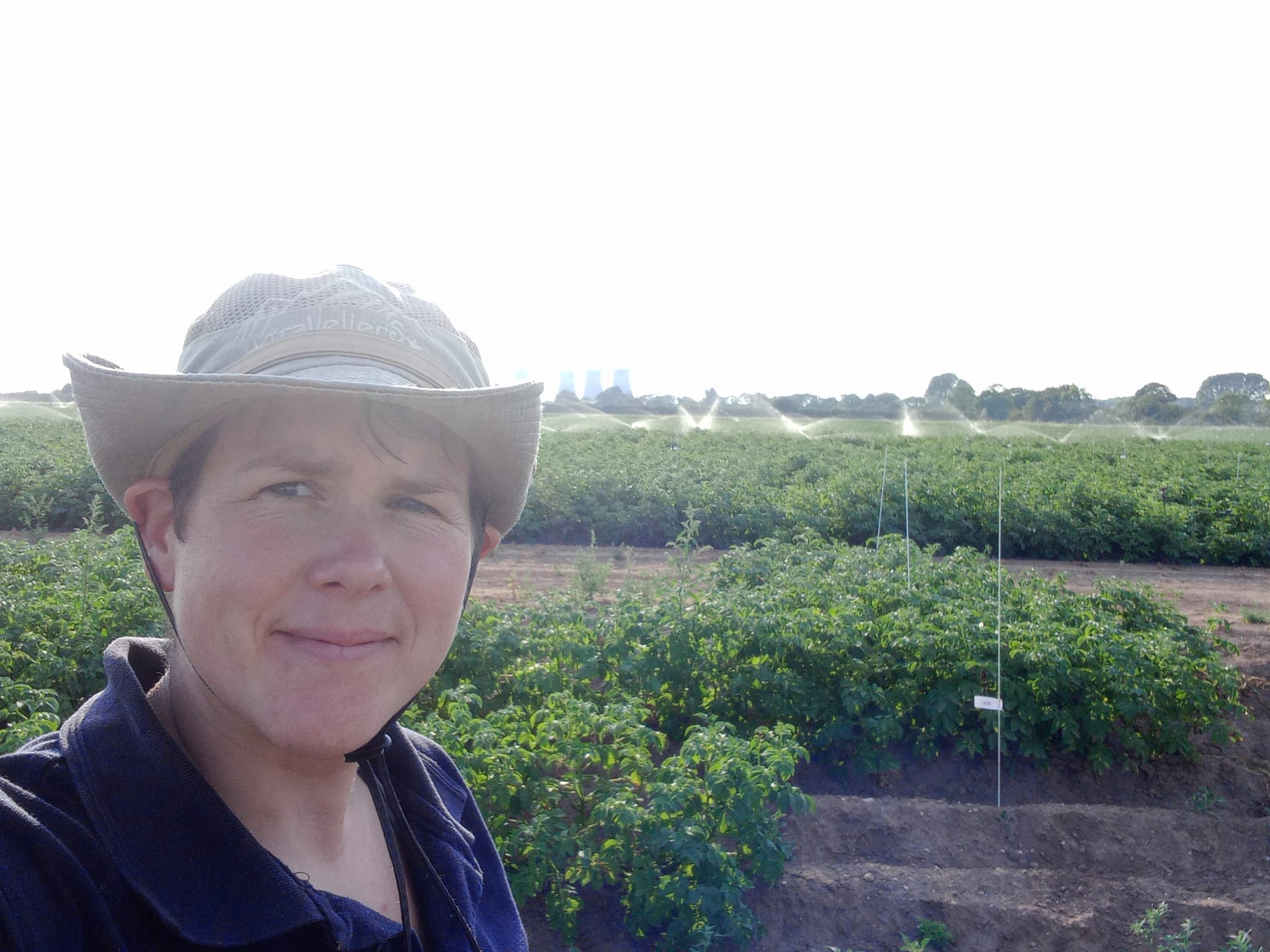In the latest ‘Perfecting Potatoes Together’ podcast guests, Meg Edmonds from Eurofins Agroscience Services Ltd and Paul Goddard from BASF, discuss the take-home messages from one of the UK’s toughest and comprehensive late blight trials.
With catchy weather, shifting strains and restricted modes of action, this year’s trials highlighted the benefits of active crop monitoring and adapting programmes to the season.
“We’ve nearly 1,000 plots onsite in Derbyshire and we’re placing trials under the worst-case scenario,” explains, Meg Edmonds, Operational Excellence Training Co-ordinator at Eurofins. “We inoculate the 11 acre site with the strains which are of most concern to the industry; have untreated areas at each end of the plots to ensure the spread of disease and irrigate frequently to supplement natural rainfall. In doing so we really ramp up the pressure.”
Weather was a key talking point on the open day. “We’ve never had to adjust our weekly spray plans so often onsite as we have this year,” acknowledges Ms Edmonds. “On-farm where growers have tried to stick religiously with seven day intervals, they’ve been tripped up by the variable conditions. With the weather becoming increasingly unsettled, growers need to monitor their crops closely, and be more adaptable both with the timing of applications and their spray programmes.”
BASF’s Stewardship and Value Chain Manager, Paul Goddard agrees, adding: “In a more usual season a maincrop may have 12 blight sprays. When the blight pressure racks up like it has this year, that can go up by 50%. It challenges our ability to control late blight while continuing to deploy best-practice to protect chemistry.”
BASF’s Enervin SC is designed to be part of the solution. As a straight formulation of ametoctradin, with its unique QoSI chemistry, it’s a useful tank-mix partner, offering the flexibility needed in difficult years.
“Enervin SC doesn’t include any CAAs or QiIs, leaving them free to use where ever you choose,” explains Mr Goddard. “And despite the pressure at this year’s Eurofins trial, Enervin SC tank mixes worked very well.”
The same logic has also been applied to its latest late blight product, BAS 657. It contains ametoctradin + potassium phosphonate.
“Both are non-clashing chemistry, so like Enervin SC, it can be fitted into the programme without affecting anything else,” says Mr Goddard. “The potassium phosphonate primes the plant, inducing host defence making it ideal for use early in a spray programme. The product is truly systemic and multisite, so it also fits well at the rapid canopy develop part of the programme.”
BAS 750 Revysol is the other new product in BASF’s pipeline and was available to see in trials at Eurofins this year.
“It’s very exciting chemistry and we’re expecting approval to come through this quarter,” says Mr Goddard. “It’s an isopropanol-azole and has been shown in other crops to deliver very strong performance with both protective and curative activity. We’ve now seen its outstanding performance with alternaria in potatoes too. In comparison with standard material, like difenoconazole, BAS 750 Revysol is a step-up in activity and has been shown to be more reliable than difenoconazole across trials in the UK and across Europe.”
Continuing the theme of the future, podcast host, Cedric Porter, invites Mr Goddard and Ms Edmonds to discuss the impact of climate change. If you’d like to hear what they said check out the latest episode at https://soundcloud.com/basf-ag-solutions-uk/potatoes-on-trial

